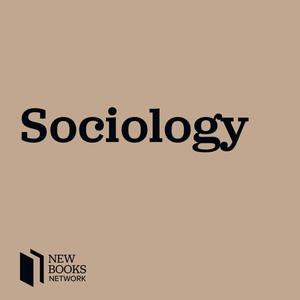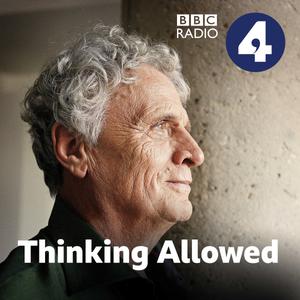
New Books in Sociology
New Books Network
Interviews with Sociologists about their New Books
- 1 hour 1 minuteMelissa Johnston, "Building Peace, Rebuilding Patriarchy: The Failure of Gender Interventions in Timor-Leste" (Oxford UP, 2023)
Over the two decades since the adoption of United Nations Security Council Resolution 1325 on Women, Peace and Security, peacebuilding interventions around the globe have increasingly incorporated gender perspectives. These initiatives have used both development programs and gender mainstreaming to advance women's empowerment, with the aim of making peacebuilding more effective as well as building more stable societies and efficient economies. This goal has been manifested in a wide range of programs and projects-or "gender interventions"—including economic empowerment measures, gender quotas, gender-responsive budgeting, and legal reforms. Yet, the results have been uneven, provoking a sizable debate among scholars and practitioners seeking to explain the shortcomings and improve the outcomes.
In Building Peace, Rebuilding Patriarchy: The Failure of Gender Interventions in Timor-Leste (Oxford University Press, 2023), Dr. Melissa Johnston explains why gender interventions often fail to help those who most need them, using the case of Timor-Leste, a country subjected to high levels of peacebuilding and gender interventions between 1999 and 2017. Looking at three types of gender interventions—gender-responsive budgeting, the law against domestic violence, and microfinance initiatives—Dr. Johnston argues that these reforms have produced mixed results because they reinscribe entrenched class and gender hierarchies in their implementation.
This interview was conducted by Dr. Miranda Melcher whose new book focuses on post-conflict military integration, understanding treaty negotiation and implementation in civil war contexts, with qualitative analysis of the Angolan and Mozambican civil wars.
Learn more about your ad choices. Visit megaphone.fm/adchoices
Support our show by becoming a premium member! https://newbooksnetwork.supportingcast.fm/sociology
21 December 2024, 9:00 am - 42 minutes 24 secondsHannah Gould et al., "Death and Funeral Practices in Japan" (Routledge, 2024)
Death and Funeral Practices in Japan (Routledge, 2024) is an essential introductory text an often overlooked element of cultural expression. The books offers a succinct history to the development of funeral practices over time, and describes a typical contemporary funeral in detail. Japanese funerals reflect the strength of continuing ancestor veneration (senzo kuyō), but face the challenge of high-density urbanisation and and reduction in family size which can lead to isolation at the time of death. The text explains new trends in funeral practices, including ‘tree burials’ and ‘eternal memorial graves’. This information is supported by material on religious, legal and governance frameworks. This text is part of an extended series of handbooks that gives the reader a clear and accessible introduction to funeral practices in countries all over the world. In this podcast, Julie Rugg of the UK's Cemetery Research Group talks to Hannah Gould about a surprising funeral culture that merges deep tradition and high-tech innovation.
Learn more about your ad choices. Visit megaphone.fm/adchoices
Support our show by becoming a premium member! https://newbooksnetwork.supportingcast.fm/sociology
20 December 2024, 9:00 am - 45 minutes 42 secondsNeil Atkinson, "Transformer: Klopp, the Revolution of a Club and Culture" (Canongate, 2024)
How did Jurgen Klopp change Liverpool? In Transformer: Klopp, the Revolution of a Club and Culture (Canongate, 2024), Neil Atkinson, host of The Anfield Wrap tells the story of Klopp’s time at the football club and in the city. The book ranges widely, from socio-cultural history, through personal memoir, to tactical analysis and contemplations on the changing styles and patterns of football. Structured around 19 key games, the book also features reflections on the need for a transformation in English (as well as European and global) football governance, alongside politics and society more generally. Funny, moving, and deeply poignant, the book will be of interest to anyone seeking to understand football, culture and society in past decade.
Learn more about your ad choices. Visit megaphone.fm/adchoices
Support our show by becoming a premium member! https://newbooksnetwork.supportingcast.fm/sociology
20 December 2024, 9:00 am - 40 minutesLuci Pangrazio and Neil Selwyn, "Critical Data Literacies: Rethinking Data and Everyday Life" (MIT Press, 2023)
Data has become a defining issue of current times. Our everyday lives are shaped by the data that is produced about us (and by us) through digital technologies. In Critical Data Literacies: Rethinking Data and Everyday Life (MIT Press, 2023), Luci Pangrazio and Neil Selwyn introduce readers to the central concepts, ideas, and arguments required to make sense of life in the data age. Bringing together cutting-edge thinking and discussion from across education, sociology, psychology, and media and communication studies, Critical Data Literacies develops a powerful argument for collectively rethinking the role that data plays in our everyday lives and re-establishing agency, free will, and the democratic public sphere.
In the episode, Luci Pangazio discusses how the tradition of critical literacies can offer a powerful foundation to address the big concerns of the data age, such as issues of data justice and privacy, algorithmic bias, dataveillance, and disinformation. We challenge the idea that datafication is an inevitable and inescapable condition.
This interview was conducted by Shreya Urvashi, a doctoral researcher of sociology and education based in Toronto, Canada.
Learn more about your ad choices. Visit megaphone.fm/adchoices
Support our show by becoming a premium member! https://newbooksnetwork.supportingcast.fm/sociology
19 December 2024, 9:00 am - 1 hour 7 minutesNathan McGovern, "Holy Things: The Genealogy of the Sacred in Thai Religion" (Oxford UP, 2024)
Scholars of religion have mostly abandoned the concept of "syncretism" in which certain apparent deviations from "standard" practice are believed to be the result of a mixture of religions. This is particularly relevant to Thailand, in which ordinary religious practice was seen by an earlier generation of scholars as a mixture of three religions: local spirit religion, Hinduism, and Buddhism. In part, the perception that Thai Buddhism is syncretistic is due to a misunderstanding of traditional Buddhism, which has always accepted the existence of local spirits and gods. Nevertheless, there are aspects of Thai Buddhist practice that still stubbornly appear syncretistic. Moreover, Thai Buddhists themselves are increasingly adopting the language of syncretism, referring to traditional Thai religion as a mixture of local, Hindu, and Buddhist practices. This raises the question: If syncretism is so wrong, then why does it seem so right?
In Holy Things: The Genealogy of the Sacred in Thai Religion (Oxford UP, 2024), Nathan McGovern answers this question through an in-depth study of the worship of spirits, gods, and Buddha images--all known as sing saksit, or "holy things"--in Thailand. He takes the reader on a historical and genealogical journey, showing how the category saksit began as a term to describe a power that is inherent to gods and spirits and accessible to Brahmans. Only later, when it was used in the nineteenth century to translate the Western concept of the "holy" did it become associated with Buddhist practice. McGovern shows that what appears to be syncretism is actually an illusion. The worship of "holy things" is not a mixture of different religions, but the category of "holy things" is a mixture of different ways of talking about religion.
Learn more about your ad choices. Visit megaphone.fm/adchoices
Support our show by becoming a premium member! https://newbooksnetwork.supportingcast.fm/sociology
19 December 2024, 9:00 am - 1 hour 24 minutesJarrett Zigon, "How Is It Between Us?: Relational Ethics and Care for the World" (HAU Books, 2023)
How Is It Between Us?: Relational Ethics and Care for the World (HAU Books, 2023) offers a new theory of relational ethics that tackles contemporary issues. In How Is It Between Us?, Jarrett Zigon puts anthropology and phenomenological hermeneutics in conversation to develop a new theory of relational ethics. This relational ethics takes place in the between, the interaction not just between people, but all existents. Importantly, this theory is utilized as a framework for considering some of today’s most pressing ethical concerns - for example, living in a condition of post-truth and worlds increasingly driven by algorithms and data extraction, various and competing calls for justice, and the ethical demands of the climate crisis. Written by one of the preeminent contributors to the anthropology of ethics, this is a ground-breaking book within that literature, developing a robust and systematic ethical theory to think through contemporary ethical problems.
Jarrett Zigon is a social theorist, philosopher and anthropologist at the University of Virginia, where he is the William & Linda Porterfield Chair in Bioethics and Professor of Anthropology. From 2018 to 2020, he was the founding director of the Center for Data Ethics and Justice at the University of Virginia.
Yadong Li is a PhD student in anthropology at Tulane University. His research interests lie at the intersection of economic anthropology, medical anthropology, hope studies, and the anthropology of borders and frontiers. More details about his scholarship and research interests can be found here.
Learn more about your ad choices. Visit megaphone.fm/adchoices
Support our show by becoming a premium member! https://newbooksnetwork.supportingcast.fm/sociology
17 December 2024, 9:00 am - 1 hour 5 minutesZygmunt Bauman, "Theory and Society" (Polity, 2024)
The publication of Theory and Society in 2024 bought to conclusion a three volume collection of The Selected Writings of Zygmunt Bauman. Preceded by Culture and Art in 2021 and Politics and History in 2023 (all published by Polity Press) these volumes presented essays which either had never been published before, were being made available in English for the first time, or had previously been published but were not well known. The books were hugely influential contributions for scholars of Bauman, who now had access to new texts, in some cases ones which encouraged some rethinking of his project, as well as scholars in social theory, the history of sociology and the themes of each volume. All the volumes were edited by four scholars, three of whom joined me for this podcast: Dariusz Brzeziński, Tom Campbell and Jack Palmer (Mark Davis makes up the team) to discuss the series, including an in-depth discussion of Theory and Society.
As we discuss in the episode, the availability of these texts, especially the translations from Bauman’s pre-exile works in Poland encourage us to look at Bauman’s work as one continuous project founded around a project of humanism and what the editors term the ‘Camus-Gramsci-Mills axis’ which defines his work. But, it also opens new ways of placing Bauman as, for example a scholar of futures and the history of sociology and social thought. We also discuss the significance of the translations of Bauman’s work (performed by Katarzyna Bartoszynska), how the opening of the Janina and Zygmunt Bauman papers at the University of Leeds provided a prompt for this project and the relation between Bauman’s work and life circumstances. I also ask the editors to pick their favourite essay from the series.
Your host, Matt Dawson is Professor of Sociology at the University of Glasgow and is the author of G.D.H. Cole and British Sociology: A Study in Semi-Alienation (2024, Palgrave Macmillan), among other books.
Learn more about your ad choices. Visit megaphone.fm/adchoices
Support our show by becoming a premium member! https://newbooksnetwork.supportingcast.fm/sociology
16 December 2024, 9:00 am - 1 hour 4 minutesNathanael Homewood, "Seductive Spirits: Deliverance, Demons, and Sexual Worldmaking in Ghanaian Pentecostalism" (Stanford UP, 2024)
In this fascinating interview, Nathanael J. Homewood discusses his new book,Seductive Spirits: Deliverance, Demons, and Sexual Worldmaking in Ghanaian Pentecostalism (Stanford University Press, 2024).
Pentecostalism, Africa's fastest-growing form of Christianity, has long been preoccupied with the business of banishing demons from human bodies. Among Ghanaian Pentecostals, deliverance is primary among the embodied, experiential gifts—a loud, messy, and noisy experience that ends only when the possessed body falls to the ground silent and docile, the evil spirits rendered powerless in the face of the holy spirit-wielding-prophets. And nowhere is Ghanaian Pentecostal obsession with demons more pronounced than with sexual demons. Homewood examines the frequent and varied experiences of spirit possession and sex with demons that constitute a vital part of Pentecostal deliverance ministries, offering insight into these practices assembled from long-term ethnographic engagement with four churches in Accra, the capital of Ghana.
Relying on the uniqueness of the Pentecostal sensorium, this book unravels how spirits and sexuality intimately combine to expand the definition of the body beyond its fleshy boundaries. Demons are a knowledge regime, one that shapes how Pentecostals think about, engage with, and construct the cosmos. Deliverance Pentecostals reiterate and tarry with the demonic, especially sexually, as a realm of invention whereby alternative ways of being, sensing, and having sex are dreamed, practiced, and performed. Ultimately, Homewood argues for a distinction between colonial demonization and decolonial demons, charting another path to understanding being, the body, and sexualities.
Nathanael Homewood is the Associate Director of Religious Studies at the University of Minnesota. His areas of specialty are global Christianity, religion and sexuality, African religion, and Pentecostalism. He has earned a B.A. in Political Science at the University of Western Ontario, an M.Div in Global Christianity from Yale Divinity School, an M.A. and Ph.D. in Religious Studies from Rice University.
Jessie Cohen holds a Ph.D. in History from Columbia University, and is an editor at the New Books Network.
Learn more about your ad choices. Visit megaphone.fm/adchoices
Support our show by becoming a premium member! https://newbooksnetwork.supportingcast.fm/sociology
15 December 2024, 9:00 am - 1 hour 47 minutesSandhya Fuchs, "Fragile Hope: Seeking Justice for Hate Crimes in India" (Stanford UP, 2024)
Fragile Hope: Seeking Justice for Hate Crimes in India (Stanford University Press, 2024). Against the backdrop of the global Black Lives Matter movement, debates around the social impact of hate crime legislation have come to the political fore. In 2019, the UN Commission on Crime Prevention and Criminal Justice urgently asked how legal systems can counter bias and discrimination. In India, a nation with vast socio-cultural diversity, and a complex colonial past, questions about the relationship between law and histories of oppression have become particularly pressing. Recently, India has seen a rise in violence against Dalits (ex-untouchables) and other minorities. Consequently, an emerging "Dalit Lives Matter" movement has campaigned for the effective implementation of India's only hate crime law: the 1989 Scheduled Castes/Scheduled Tribes Prevention of Atrocities Act (PoA).
Drawing on long-term fieldwork with Dalit survivors of caste atrocities, human rights NGOs, police, and judiciary, Sandhya Fuchs unveils how Dalit communities in the state of Rajasthan interpret and mobilize the PoA. Fuchs shows that the PoA has emerged as a project of legal meliorism: the idea that persistent and creative legal labor can gradually improve the oppressive conditions that characterize Dalit lives. Moving beyond statistics and judicial arguments, Fuchs uses the intimate lens of personal narratives to lay bare how legal processes converge and conflict with political and gendered concerns about justice for caste atrocities, creating new controversies, inequalities, and hopes.
Learn more about your ad choices. Visit megaphone.fm/adchoices
Support our show by becoming a premium member! https://newbooksnetwork.supportingcast.fm/sociology
14 December 2024, 9:00 am - 40 minutes 43 secondsCarrie M. Lane, "More Than Pretty Boxes: How the Rise of Professional Organizing Shows Us the Way We Work Isn't Working" (U Chicago Press, 2024)
This study of organizing and decluttering professionals helps us understand—and perhaps alleviate—the overwhelming demands society places on our time and energy.
For a widely dreaded, often mundane task, organizing one’s possessions has taken a surprising hold on our cultural imagination. Today, those with the means can hire professionals to help sort and declutter their homes. In More Than Pretty Boxes: How the Rise of Professional Organizing Shows Us the Way We Work Isn't Working (University of Chicago Press, 2024), Carrie M. Lane introduces us to this world of professional organizers and offers new insight into the domains of work and home, which are forever entangled—especially for women.
The female-dominated organizing profession didn’t have a name until the 1980s, but it is now the subject of countless reality shows, podcasts, and magazines. Lane draws on interviews with organizers, including many of the field’s founders, to trace the profession’s history and uncover its enduring appeal to those seeking meaningful, flexible, self-directed work. Taking readers behind the scenes of real-life organizing sessions, More Than Pretty Boxes details the strategies organizers use to help people part with their belongings, and it also explores the intimate, empathetic relationships that can form between clients and organizers.
But perhaps most importantly, More Than Pretty Boxes helps us think through an interconnected set of questions around neoliberal work arrangements, overconsumption, emotional connection, and the deeply gendered nature of paid and unpaid work. Ultimately, Lane situates organizing at the center of contemporary conversations around how work isn’t working anymore and makes a case for organizing’s radical potential to push back against the overwhelming demands of work and the home, too often placed on women’s shoulders. Organizers aren’t the sole answer to this crisis, but their work can help us better understand both the nature of the problem and the sorts of solace, support, and solutions that might help ease it.
Michael O. Johnston, Ph.D. is a Assistant Professor of Sociology at William Penn University. He is the author of The Social Construction of a Cultural Spectacle: Floatzilla (Lexington Books, 2023) and Community Media Representations of Place and Identity at Tug Fest: Reconstructing the Mississippi River (Lexington Books, 2022). His general area of study is at the intersection of space, behavior, and identity. He is currently conducting research about the negotiation that humans make between their identity and the spaces they inhabit. To learn more about Michael O. Johnston you can go to his personal website, Google Scholar, Bluesky @professorjohnst.bsky.social,Twitter @ProfessorJohnst, or by email at [email protected].
Learn more about your ad choices. Visit megaphone.fm/adchoices
Support our show by becoming a premium member! https://newbooksnetwork.supportingcast.fm/sociology
14 December 2024, 9:00 am - 1 hour 24 minutesShehnaz Haqqani, "Feminism, Tradition and Change in Contemporary Islam: Negotiating Islamic Law and Gender" (Oneworld, 2024)
Shehnaz Haqqani's new book Feminism, Tradition and Change in Contemporary Islam: Negotiating Islamic Law and Gender (Oneworld 2024), masterfully blends textual analysis of pre-modern and modern Islamic consensus with qualitative interviews with Muslims in the contemporary United States, to track how notions of what constitutes Islamic and Islamic tradition shift over time. We learn from her interlocutors that certain Islamic legal rulings can be negotiated, as in the case of child marriage, sexual slavery or even female inheritance, while other legal consensus, such as around women’s interfaith marriage or women leading mixed-gender prayers are not negotiable. Haqqani incisively swifts through these various standards of negotiations and arrives at how legal rulings pertaining to Muslim women’s experiences are met with resistance. It seems then that matters of urgency and relevance, which are inevitably political, dedicate when Islamic law and/or tradition can be negotiated. Haqqani’s book illuminates how Islamic tradition has always been flexible, but male dominated scholarly consensus still dedicates this flexibility (or rather inflexibility from an Islamic feminist perspective). This book will be of interest to those who think on gender, Islam, Islamic feminism, Islamic law, and much more.
Dr. Shehnaz Haqqani is an assistant professor at Mercer University and specialises in Islam, with a focus on gender and sexuality. She is a host of the podcast New Books Network.
Learn more about your ad choices. Visit megaphone.fm/adchoices
Support our show by becoming a premium member! https://newbooksnetwork.supportingcast.fm/sociology
13 December 2024, 9:00 am - More Episodes? Get the App
Your feedback is valuable to us. Should you encounter any bugs, glitches, lack of functionality or other problems, please email us on [email protected] or join Moon.FM Telegram Group where you can talk directly to the dev team who are happy to answer any queries.
 The Dig
The Dig
 Know Your Enemy
Know Your Enemy
 Thinking Allowed
Thinking Allowed
 New Books in Critical Theory
New Books in Critical Theory
 Jacobin Radio
Jacobin Radio